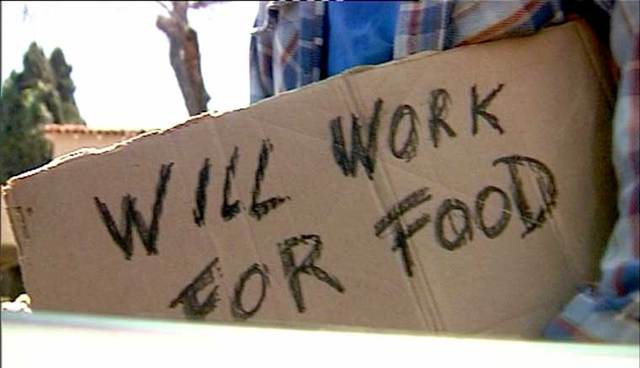
Advice doesn’t come any better than this – from the excellent Editorialiste:
- Send in applications everywhere you think you’ve got a shot — then prove it to each company in your application. It’s worth the time to tailor your application, even if you never hear back.
- When you’ve sent out all that you can, send more. I can’t stress this enough. The job search becomes exhausting, but you must persist.
- Contact friends and mentors and coworkers not for jobs, but for advice. Very few actually can and have jobs to offer you, but everyone has a wealth of experience on how they got where they are today.
- Tell everyone that you’re looking. I had several friends, not all of them close, regularly send me jobs they came across. Some I had seen, some I hadn’t, but those morning e-mails were a great pick-me-up when things felt grim.
- Take a break. The job search is nerve-wracking because it feels as though fate is closing in on you as your funds for living run out. Don’t go a day without sending an application somewhere, but don’t go a day without smiling. The whole job search is an internalized affair, like a tea kettle nearing boil. So make sure you get out of the house and see friends. Or go to the gym. Mental health is important at this time.
- Take people’s advice with a grain of salt, but listen. As a journalist, this goes without saying. I received a ton of contradictory comments in the two posts I wrote, but what I gained most from the whole affair is that people are listening (I even received a freelance offer). Use that momentum as inspiration to keep applying places.
- Keep your online presence up-to-date. I received lots of comment when I changed my LinkedIn status message to “Looking for a job.”
- If you get rejected, politely ask why. I was rejected for a position that I thought I had a particularly good shot at; turns out that with so many job layoffs, the publication was overwhelmed with overqualified applicants. So I replied and asked what I could have done better as an applicant. The editor was kind enough to answer in specifics why I didn’t make the cut, and encouraged me that I was a solid applicant who was just blown away by the circumstances. She also offered to take my pitches for stories, which would have been important had I not taken my current position. Remember — editors know what it’s like, and more often than not, they’ll relate!
And finally, when it comes to the actual job: negotiate that salary.
Once you’re settled in, don’t forget to repay the favor to your friends by helping them find jobs or listings.
3 responses to “Job-hunting for young journalists”
Adrian,
This was fantastic. I plan to tweet, post about this later today.
I applied for the job I wanted. They said ‘Get lost’. Then they said, ‘You’re a woman, You’re nearly 30, why would we want you?’ So I researched their staff profiles. I was told I needed to go and live somewhere in Africa for at least a year and show that I meant what I said. So I did. For a year. I came back. Begged them for work experience. I was 29. I got 2 weeks unpaid work experience. Noone talked to me. I felt embarrassed. The other work experience was 21. Shameful. Humiliating. And then they gave me a week’s paid work. And then another. And then another. And 4 weeks later, I went to work in Angola as a correspondent…
Persistence is the answer. And desperation.
I’m a much older journalist who went through periods of unemployment. I know how terrible editors have treated job applicants, especially during tough times such as these.
I wish anyone who is out of work the best of luck.
Persistence can work, but only if an editor has some interest in the applicant from the start.